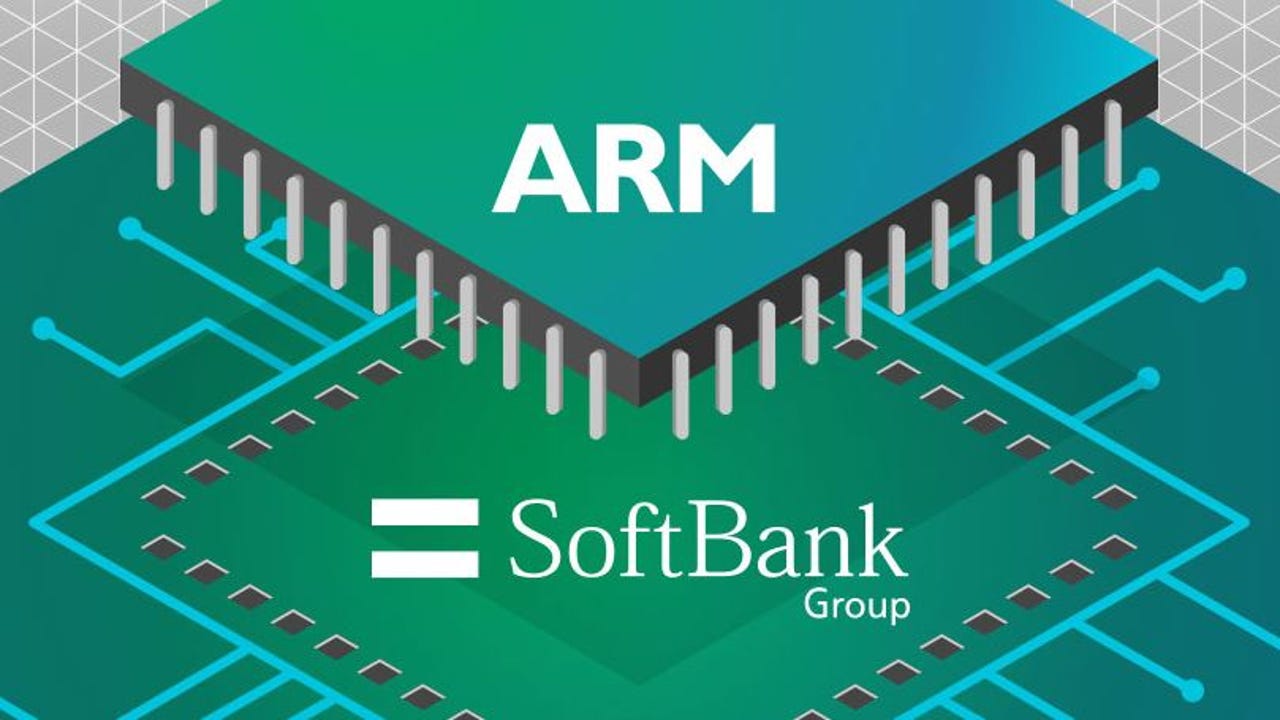Selling off the family silicon: Why the UK is upset about the ARM takeover


ARM is the UK's most valuable tech company, so its projected £24.3bn ($31.4bn) takeover by Japan's SoftBank is a big story for the British IT industry. Many people are upset, including ARM's effective cofounder, the Austrian-born Hermann Hauser, who tweeted: "ARM is the proudest achievement of my life. The proposed sale to SoftBank is a sad day for me and for technology in Britain."
ARM-based processors are used in the vast majority of the world's smartphones and tablets, and countless other devices from routers to TV sets to cars. They are also expected to be widely adopted for Internet of Things devices, where the combination of low power consumption and low prices makes ARM chips attractive. As ZDNet reported, this is partly what attracted SoftBank.
But the fact is that ARM never was a British-owned company, and owed its creation to one US company in particular: Apple.
When ARM was founded in 1990 ( PDF), its ownership was split three ways (roughly 40:40:20) between Acorn, Apple, and VSLI Technology Inc. Two of those were US companies, and 80 percent of the third was owned by Olivetti. The Italian conglomerate had rescued Acorn in 1985, when it was at risk of running out of cash.
But ARM Ltd, the company, was set up because Apple wanted to use an ARM processor in its Newton handheld computer, and wasn't willing to buy an essential chip from a rival proprietary computer company. (Both Acorn and Apple targeted the UK education market.)
At Apple's behest, ARM was spun off from Acorn and the acronym changed from Acorn RISC Machine to Advanced RISC Machines. VLSI Technology Inc (aka VTI), another Silicon Valley company, made up the triumvirate because Acorn had used its custom design tools to develop the ARM, and VTI was the initial ARM manufacturer.
(Would ARM have been spun-off without Apple? I was around at the time, and no one suggested that might happen. My guess is that VTI would eventually have bought the IP for very little money.)
ARM the company was also a great British success story. Apple's Newton flopped and Acorn faltered, but ARM grew from a tiny startup to dominate the global smartphone market. That was in large part due to the brilliance of Robin Saxby (now Sir Robin), who was CEO until 2001, and continued as chairman until 2006. Saxby took the company public as ARM Holdings plc in 1998, listing on both the London Stock Exchange and New York's NASDAQ.
SoftBank's bid boosted ARM's share price.
Once ARM Holdings was on the stock market, of course, its shares could be bought by whoever was willing to pay the price. And the whole company could be bought by anyone willing to pay a premium price -- in this case, 43 percent -- acceptable to the investment funds that are ARM's major shareholders.
Of course, a lot of tech takeovers work out badly for all concerned, but in this case, there's not much point in worrying about ARM's future. It's not going to be dismembered and subsumed into SoftBank, and its value to SoftBank depends on its continued success. SoftBank is independent, so there's no big reason to look for alternative chips, as there might be if it were taken over by Intel, Apple, Samsung, or another rival. Further, there's no raft of small UK suppliers that depend on providing ARM with parts and services.
The things to worry about are that, first, ARM was the UK's only major success in the global IT business, and second, that its creation may well have been a historical accident.
If British entrepreneurs, venture capitalists, and universities had created a string of ARM-like companies on the Silicon Valley model, the UK would be in good shape. But they haven't.
It's not for want of trying. The Silicon Fen area around Cambridge University has spent 25 years trying to emulate Silicon Valley's success, and it has been joined more recently by London's Silicon Roundabout/Tech City and various other areas in the UK and across Europe.
Perhaps things have changed. The UK seems to have more tech-oriented startups than ever before, and it even has venture capitalists -- including Hermann Hauser with Amadeus Capital Partners -- providing investment funds and management support. Perhaps one of today's minnows will grow into something as big as Skype, PayPal, or Snapchat, if not a global giant like Amazon, Facebook, or Google. You can check back in a decade or two, but I wouldn't bet on it.
In spite of being mostly at the forefront of technology, the UK never managed to produce a globally significant mainframe, minicomputer, or microcomputer company, or even a global web property. (We have Canonical with Ubuntu, but that's a private company bankrolled by a very rich South African.)
This is the real reason why this takeover hurts: we lucked out once, but we may not see ARM's like again.